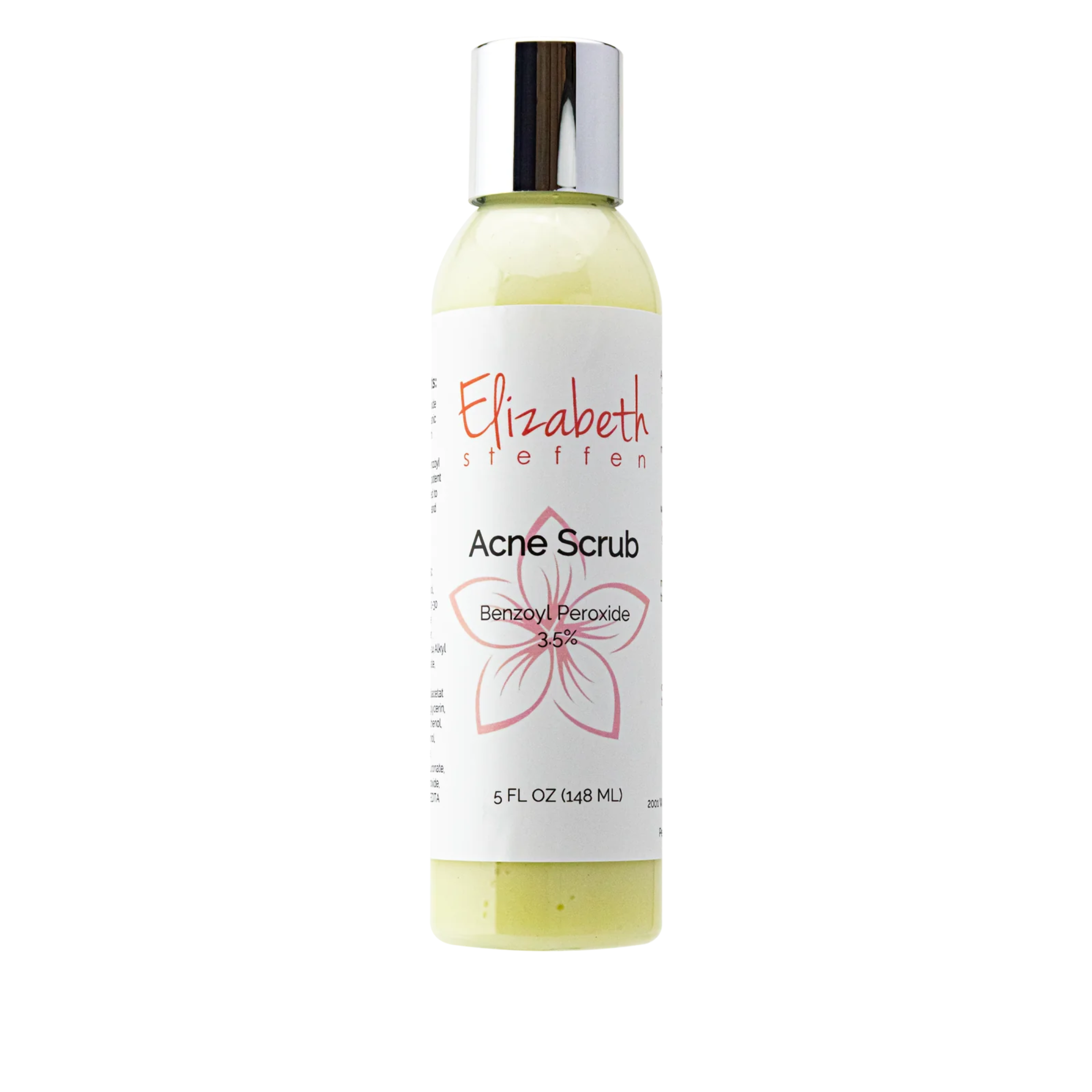
Sunscreens for Acne-Prone Skin in the Summer: Your Ultimate Guide
Protecting Your Skin During the Summer
Summer is a time when we all want to soak up the sun and enjoy outdoor activities. However, if you have acne-prone skin, the summer heat can be a cause for concern. Excessive sun exposure can lead to skin damage, inflammation, and breakouts. That's why it's crucial to find the right sunscreen that not only provides sun protection but is also suitable for acne-prone skin. In this comprehensive guide, we will explore the best sunscreens for acne-prone skin in the summer, helping you keep your skin healthy and protected.

Sunscreens for Skin Prone to Acne in the Summer: Essential Information to Keep in Mind
Understanding Acne-Prone Skin
Before we dive into the specifics of sunscreens, let's first understand what acne-prone skin is. Acne-prone skin is characterized by the presence of frequent breakouts, pimples, blackheads, and whiteheads. It is often caused by excess oil production, clogged pores, and the growth of acne-causing bacteria. When choosing a sunscreen, it's essential to consider the specific needs of acne-prone skin to prevent further irritation and breakouts.
The Importance of Sunscreen for Acne-Prone Skin
One might wonder if using sunscreen is necessary for acne-prone skin. The answer is a resounding yes! When I’m coaching my clients about their daily homecare routine, they often ask if they can skip this step. The answer is always NO! Sunscreen is a vital part of any skincare routine, regardless of skin type. When exposed to the sun's harmful UV rays, the skin is at risk of damage, including premature aging, sunburn, and even skin cancer.
It is crucial to be aware of the potential effects of acne medications and treatments on sun sensitivity. Therefore, using sunscreen becomes even more crucial in safeguarding the skin. Furthermore, selecting a sunscreen that aligns with your acne type when using other acne-clearing ingredients can help counteract excessive dryness on the skin. Take, for instance, when my clients follow their evening routine with the application of the Clear Skin 10%, it is highly likely that mild irritation will occur from the skin drying out.

How to Choose the Right Sunscreen for Acne-Prone Skin
When it comes to selecting the best sunscreen for acne-prone skin, there are a few key factors to consider. By keeping these factors in mind, you can find a sunscreen that offers adequate protection without exacerbating your skin concerns.
Look for Non-Comedogenic, Low-Comedogenic or Acne-Safe Formulas
Non-comedogenic sunscreens are specifically formulated to avoid clogging the pores completely. They are designed to allow the skin to breathe while providing effective sun protection. Look for sunscreens labeled as non-comedogenic to minimize the risk of breakouts and pore congestion. I also advise you check the ingredients of the sunscreen to make sure they really are acne-safe. Check out this pore-clogging ingredient list you can use to verify you products will not clog your pores. You can also find this in my acne secrets book called Filter Free & Flawless. You can pick it up for FREE with just paying for shipping and handling.
Opt for Oil-Free and Lightweight Formulations for non-inflamed acne
Sunscreens with oil-free and lightweight formulations are ideal for non-inflamed acne-prone skin. From my professional experience, if you are prone to mostly whiteheads and blackheads, using a oil-free products is the way to go. These formulas are less likely to feel heavy or greasy on the skin, reducing the chances of clogged pores and breakouts.
There are some exceptions to this rule though. If you are experiencing excessive dryness from using acne clearing products then I may suggest low-comedogenic sunscreen. There are some oil-based sunscreens that have little to no affect on acne prone skin, but this can be challenging nonetheless to discover. If you have mostly cystic or inflamed acne, a lightweight sunscreen with some oil that is low on the comedogenic scale is often not an issue with increasing acne breakouts on the face.

Consider Sunscreens with Ingredients that Benefit Acne-Prone Skin
In addition to providing sun protection, some sunscreens contain ingredients that are beneficial for acne-prone skin. Look for sunscreens that contain ingredients like niacinamide, zinc oxide, or titanium dioxide. These ingredients can help soothe inflammation, control excess oil production, and promote healing. When clearing up challenging acne, this is a huge win!
SPF and Broad-Spectrum Protection
When choosing a sunscreen, ensure that it offers broad-spectrum protection, which means it shields the skin from both UVA and UVB rays. The SPF (Sun Protection Factor) indicates the level of protection against UVB rays. For acne-prone skin, it is generally recommended to use a sunscreen with an SPF of 30 or higher.
Frequently Asked Questions (FAQs)
Q1: Can sunscreen make acne worse?
A1: Sunscreen itself does not cause acne. However, certain sunscreens may contain pore-clogging ingredients that can exacerbate acne-prone skin. That's why it's important to choose non-comedogenic and oil-free sunscreens specifically formulated for acne-prone skin.
Q2: Should I skip sunscreen if I have acne-prone skin?
A2: No, skipping sunscreen is not advisable, even if you have acne-prone skin. Sunscreen is crucial for protecting your skin from harmful UV rays and preventing skin damage. It also helps with adding hydration when using ingredients like benzoyl peroxide, which can dry the skin. Look for sunscreens specially designed for acne-prone skin to minimize the risk of breakouts.
Q3: How often should I apply sunscreen during the summer?
A3: It is recommended to apply sunscreen every two hours, especially when you are outdoors and exposed to direct sunlight. If you are swimming or sweating, reapply sunscreen more frequently to maintain optimal protection. If you are just doing normal inside stuff during the summer months, just applying it as part of your morning routine is sufficient enough.
Q4: Can I use sunscreen as a substitute for a moisturizer?
A4: While some sunscreens offer moisturizing properties, they may not provide sufficient hydration for your skin. It is best to use a separate moisturizer before applying sunscreen to ensure your skin stays adequately moisturized.
Q5: Are mineral sunscreens better for acne-prone skin?
A5: Mineral sunscreens, which contain ingredients like zinc oxide or titanium dioxide, are often recommended for acne-prone skin. These ingredients provide a physical barrier on the skin's surface and are less likely to cause irritation or breakouts. Zinc is also anti-inflammatory and aids in healing acne lesions.
Q6: Can sunscreen prevent acne scars?
A6: Sunscreen can help prevent post-inflammatory hyperpigmentation acne scars by protecting the skin from UV damage. Exposing acne-prone skin to the sun can lead to hyperpigmentation and prolonged healing of acne scars. Using sunscreen regularly can minimize these risks.
Protect and Pamper Your Acne-Prone Skin this Summer
Finding the right sunscreen for acne-prone skin is crucial for maintaining healthy and protected skin during the summer months. By considering non-comedogenic formulas, oil-free and lightweight formulations, and sunscreens with beneficial ingredients, you can enjoy the sun without worrying about breakouts or skin damage. Remember to apply sunscreen generously and reapply frequently, especially when spending extended periods outdoors. With the right sunscreen, you can embrace the summer while keeping your acne-prone skin happy and glowing.
If you would like to know more about how we work to get our clear clients clear skin, check out our Acne Coaching Programs. We offer a comprehensive approach to clearing acne with over a 95% success rate with clearing acne. We have many happy clients with acne free skin now.



